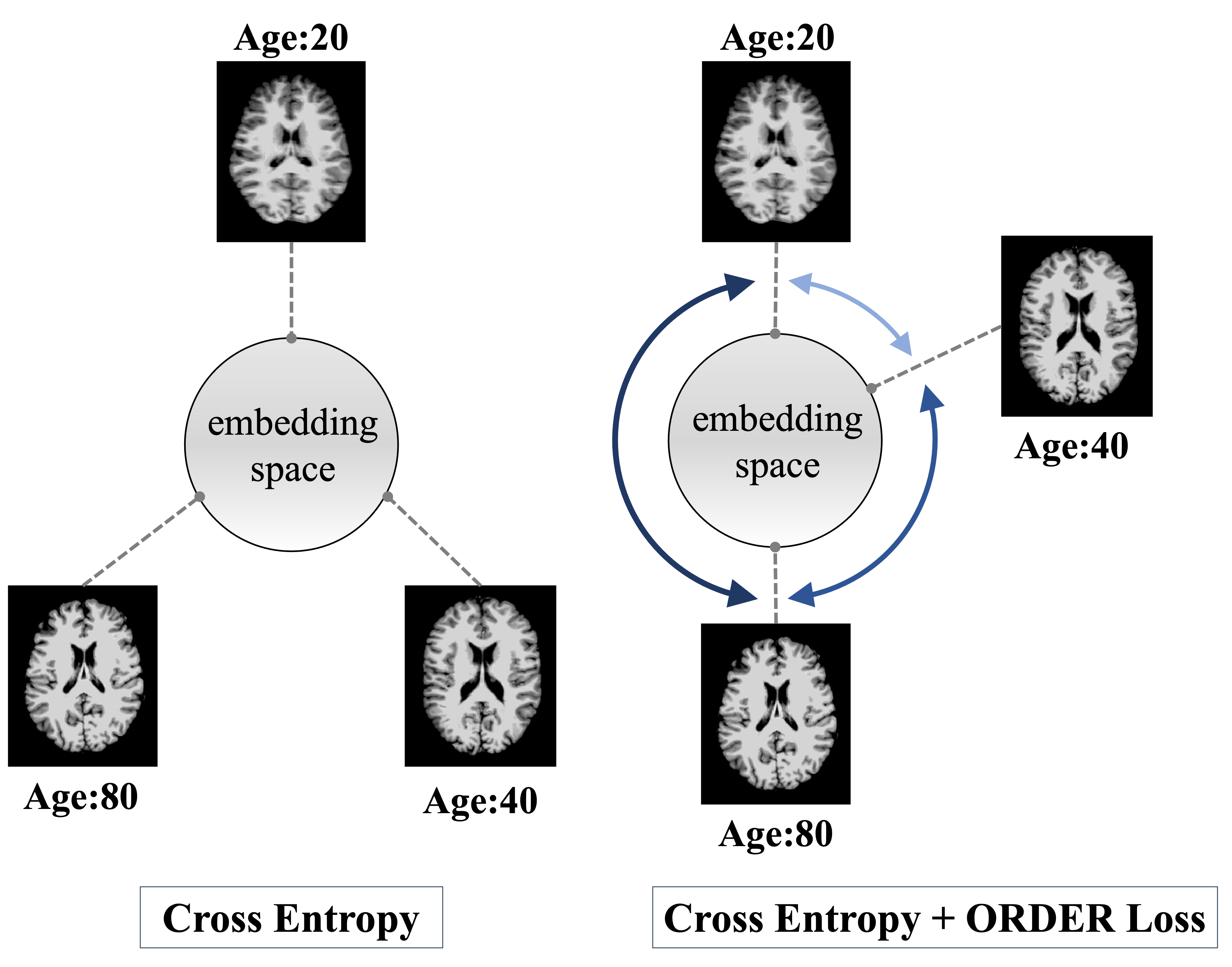Ordinal Classification with Distance Regularization for Robust Brain Age Prediction
Age is one of the major known risk factors for Alzheimer's Disease (AD). Detecting AD early is crucial for effective treatment and preventing irreversible brain damage. Brain age, a measure derived from brain imaging reflecting structural changes due to aging, may have the potential to identify AD onset, assess disease risk, and plan targeted interventions. Deep learning-based regression techniques to predict brain age from magnetic resonance imaging (MRI) scans have shown great accuracy recently. However, these methods are subject to an inherent regression to the mean effect, which causes a systematic bias resulting in an overestimation of brain age in young subjects and underestimation in old subjects. This weakens the reliability of predicted brain age as a valid biomarker for downstream clinical applications. Here, we reformulate the brain age prediction task from regression to classification to address the issue of systematic bias. Recognizing the importance of preserving ordinal information from ages to understand aging trajectory and monitor aging longitudinally, we propose a novel ORdinal Distance Encoded Regularization (ORDER) loss that incorporates the order of age labels, enhancing the model's ability to capture age-related patterns. Extensive experiments and ablation studies demonstrate that this framework reduces systematic bias, outperforms state-of-art methods by statistically significant margins, and can better capture subtle differences between clinical groups in an independent AD dataset. Our implementation is publicly available at ***.
PDF Abstract IEEE/CVF Winter 2023 PDF IEEE/CVF Winter 2023 AbstractResults from the Paper
| Task | Dataset | Model | Metric Name | Metric Value | Global Rank | Benchmark |
|---|---|---|---|---|---|---|
| Ordinal Classification | OASIS+NACC+ICBM+ABIDE+IXI | ResNet-18 | Mean absolute error | 2.56 | # 1 |





 IXI
IXI
 ABIDE
ABIDE
